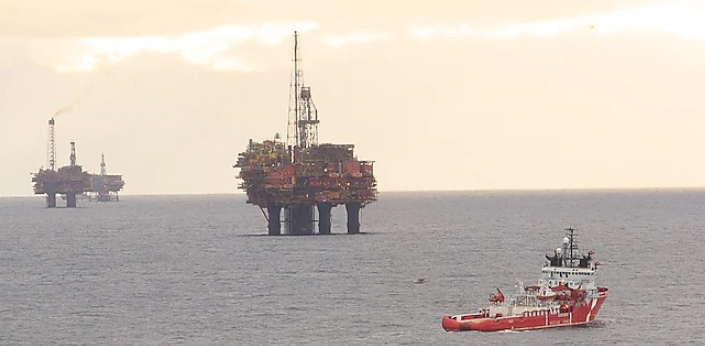More than 130 workers were evacuated from Shell’s ‘Brent Charlie’ oil platform in North Sea, due to power outage, on 27 November. Crew men onboard ‘Brent Charlie’, located 185km North East of Lerwick, Shetland, contacted the HM Coastguard in the early morning hours of Tuesday reporting that they had lost power and were running on backup batteries.
According to data provided by HM Coastguard, the platform had limited power, with no lighting or heating, while weather conditions were inclement at the time. As such, the company declared an emergency decided to evacuate the 135 non-essential crew out of a total of 184 for safety reasons.
An HM Coastguard Search and Rescue helicopter was deployed to evacuate the crew to two neighbouring platforms, Brent Alpha and Brent Bravo. The Helicopter spent two hours evacuating the crew and completed four trips to Brent Charlie. The Brent Charlie platform was shut down for maintenance. Early the next day, power was restored, and the 48 crew remained onboard.
The Brent oil and gas field has been a cornerstone of the UK oil and gas industry for 40 years. The field lies off the north-east coast of Scotland, midway between the Shetland Islands and Norway. It is one of the largest fields in the North Sea and is served by four large platforms – Alpha, Bravo, Charlie and Delta.
To date, the Brent field has produced around three billion barrels of oil equivalent. At its peak in 1982, the field was producing more than half a million barrels a day. Its production that year would have met the annual energy needs of around half of all UK homes.
The Brent Charlie was the last of four platforms installed in the area in 1978. Three of the four Brent platforms have now stopped production, with Charlie planned to stop in the near future.






























































